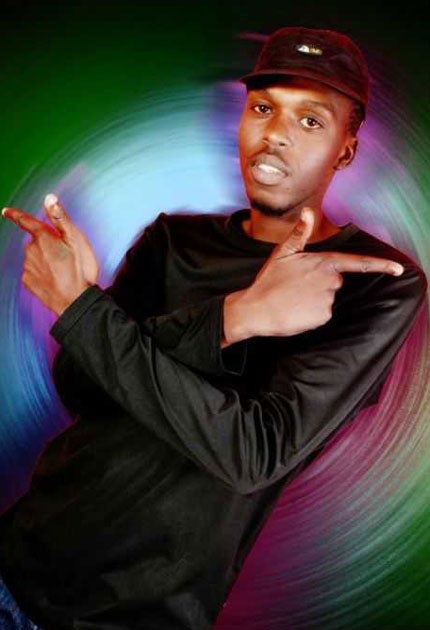A kick in the teeth for South African music
The World Cup's host nation has a cutting-edge dance scene, says Chris Mugan. So why is it being sidelined this summer?

Your support helps us to tell the story
From reproductive rights to climate change to Big Tech, The Independent is on the ground when the story is developing. Whether it's investigating the financials of Elon Musk's pro-Trump PAC or producing our latest documentary, 'The A Word', which shines a light on the American women fighting for reproductive rights, we know how important it is to parse out the facts from the messaging.
At such a critical moment in US history, we need reporters on the ground. Your donation allows us to keep sending journalists to speak to both sides of the story.
The Independent is trusted by Americans across the entire political spectrum. And unlike many other quality news outlets, we choose not to lock Americans out of our reporting and analysis with paywalls. We believe quality journalism should be available to everyone, paid for by those who can afford it.
Your support makes all the difference.Organisers of football's World Cup will gladly tell you what a unifying force their sport is, but on whose terms? Is the four-yearly tournament a chance to immerse yourself in a nation's culture or just another global marketing spree?
One of the joys of the game is a variety of expression that means free-spirited Brazilians play entirely differently to Italian stalwarts of defensive organisation. Likewise, while northern Europeans chant for their teams, South Africans blow their vuvuzelas, the plastic trumpets whose constant drone irritates many, especially broadcasters. While the music-free instruments seem safe for now, there is already grumbling from street traders moved off their regular pitches and small businesses unable to use the World Cup to sell their wares without taking out a cripplingly expensive sponsorship package.
The same could well apply to the South African contemporary music scene, elbowed out of the festivities by more bankable names. Like other facets of the country's economic and cultural life, its record industry was crippled by the anti-apartheid boycott. No wonder the nation continued to be represented musically by the dulcet tones of its choirs, notably Ladysmith Black Mambazo, and the exiled artists and activists Hugh Masekela and Miriam Makeba.
Of course, for the opening ceremony, you would expect the organisers to play safe – so it is not a surprise to see Masekela, the grand old man of South African jazz, alongside the Soweto Gospel Choir. You also get cheery afropop outfit Freshlyground, poster boys and girls of this rainbow nation. Such names were only added recently as organisers belatedly responded to criticism about the lack of homegrown talent on the bill for the 10 June event.
Even then, the line-up that pits heart-warming gospel music against Shakira, Black Eyed Peas and Alicia Keys, fails to do justice to the vitality of current music trends within 2010's host nation. Recent years have seen the emergence of new genres and cutting-edge acts, among them the thrilling psych-rock outfit Blk Jks and DJ Mujava, the dancefloor supremo who transformed his home country's insular hip-hop sub-genre, kwaito, into something that punched at the same weight as Brazil's favela funk.
Indeed, so cutting-edge was the Pretorian Mujava's tough instrumental "Township Funk" that it fitted alongside the output from our own burgeoning dubstep scene. It was quickly snapped up by Warp Records. Little has been heard from him since over here, but he has now resurfaced on a compilation of the tunes that are rocking dance floors in his home country.
Ayobaness – The Sound of South African House features Mujava's vocal track "Mugwanti" among its highlights, alongside the celebratory title track from one Pastor Mbhobho, an eye-catching character who dresses in priestly garb and armfuls of bling. He ought to be a shoe-in as an alternative cultural ambassador for Africa's first World Cup. Yet if Masekela had his way, you would not hear at all from South Africa's dance scene. "There's little new music, because what is new is electronic," the veteran grumps about the soundtrack to his mother country's energetic nightlife.
DJs and producers, meanwhile, continue to grasp the possibilities of new technology. They are even poking fun at the political establishment. Several have worked samples into their dance tracks from some of the more extreme ends of the political spectrum. On YouTube, for example, you can find vocals from the ANC's youth leader, Julius Malema, filmed haranguing a BBC journalist.
You can't blame 71-year-old Masekela for failing to keep up with modern advances. Maybe he does not realise how widely he has been sampled by this new generation of artists, though given his views on electronic music, it may be best to let that one lie.
Join our commenting forum
Join thought-provoking conversations, follow other Independent readers and see their replies
Comments